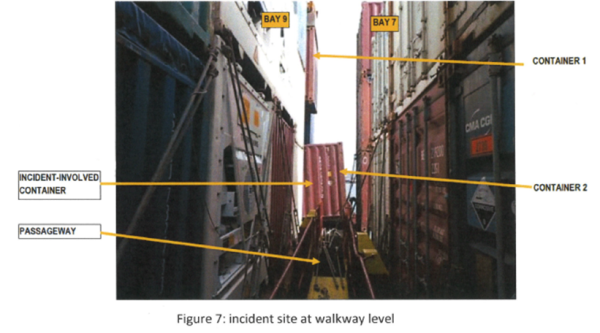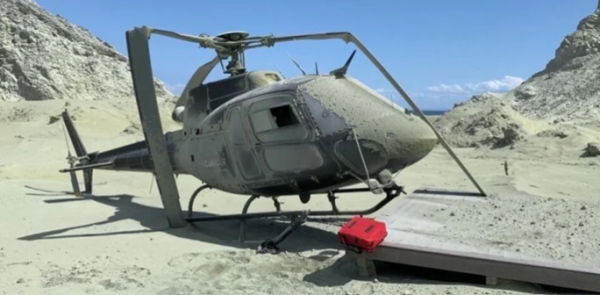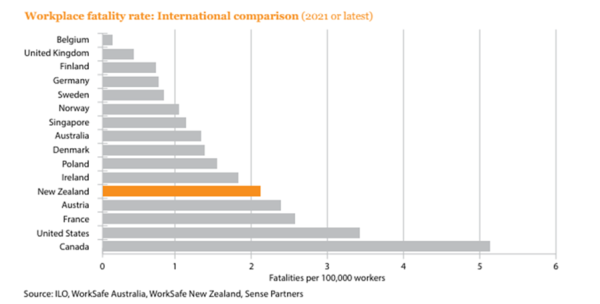The Judge hearing the health and safety prosecution of former Port of Auckland CEO Tony Gibson is expected to give his decision in or around August 2024.
Introduction
The decision is an opportunity for the Court to give some much-needed clarity to the due diligence duty that applies to all CEOs and other ‘officers’ under section 44 of the Health and Safety at Work Act (HSWA).
What’s this case about? Why is it so important? Why will the decision matter whatever the outcome of the case?
What’s the Gibson case about?
Pala'amo Kalati, a 31-year-old father-of-seven, went to work on 30 August 2020 on the night shift as a stevedore lasher at the Port of Auckland. He was killed at work that day.
The Constantinos P, a container ship, was discharging containers. Mr Kalati was on the Constantinos P working in a passageway between rows of containers, lashing containers that had been mistakenly unlashed by the dayshift.
A container crane was working nearby and the operator could not see Mr Kalati or his lashing partner. When the crane lifted two containers off the ship, one was attached to a third container below it because a twist-lock was not opened before the lift. The twist-lock failed, causing that third container to drop and tragically crush Mr Kalati.

Maritime NZ prosecuted Ports of Auckland Ltd for breaches of the HSWA and, following guilty pleas, a fine of $561,000 was imposed on 1 December 2023.
Mr Gibson, the chief executive officer of Ports of Auckland at the time of Mr Kalati’s death was charged with breaching section 44 of the HSWA and pleaded not guilty. The hearing of the case against Mr Gibson before Judge Bonner KC in the District Court in Auckland started in March 2024 and ended in June 2024.
Why is this case so important?
Although the HSWA has been in force for nearly a decade, and the prospect of ‘officers’ facing prosecution was the cause of much worry bead fidgeting when the Act was passed, actual prosecutions of officers have been very rare, especially when it comes to corporate-type officers who are not hands-on in the day-to-day operations of an organisation.
The duty on officers (CEOs, directors, trustees and others) under section 44 of HSWA is to exercise due diligence to ensure their organisation complies with its duties and obligations under the HSWA. The penalties for a breach are significant, and the law forbids insurance to cover such penalties.
While section 44 gives some guidance about what constitutes ‘due diligence’ under the Act – it remains an area where more clarity and guidance is much needed. This need for better clarity and guidance is a major theme of Been there. Done that. - A report into New Zealand’s repeated health and safety failures by the Business Leaders’ Safety Forum released earlier this month.

Following the Whakaari/White Island tragedy, in which WorkSafe charged the three directors of Whakaari Management Limited with breaches of their section 44 due diligence duty, there was cause for optimism the decision in that case would give some helpful guidance. However, the case against the 3 directors had been so poorly pleaded and presented that Judge Thomas dismissed the charges against the directors out of hand before any evidence was called by the defendants.
Why will the decision matter whatever the outcome of the case?
Whether or not Mr Gibson is eventually convicted of breaching section 44, there’s a fair expectation that Judge Bonnar KC’s decision will shed helpful light on what is expected of CEOs and other officers under section 44.
The case has been robustly presented and well-resourced for both the prosecution and defence – it appears the parties had at least 3 legal counsel each in court and closing arguments ran to about 350 pages.
Mr Gibson will be hoping the Judge is persuaded to adopt the approach in the recent Australian District Court decision in SafeWork NSW v Doble [2024] NSWDC 58 where a director was found not guilty of breaching the Australian equivalent of our due diligence duty.
Whatever the outcome of the case, CEOs, directors and other officers will need to urgently evaluate their own adherence to section 44 in light of the decision that is handed down. We'll provide an update once that decision is available.
If officers are given more clarity and certainty about their duties, then the bigger hope is that this can help New Zealand make some real progress in reducing its poor health and safety performance – including the horrendous statistic that New Zealand workers are almost twice as likely to die at work than their Australian counterparts.

[Source: State of a thriving nations – Inaugural report, August 2023, Business Leaders’ Health and Safety Forum]
